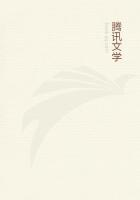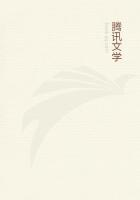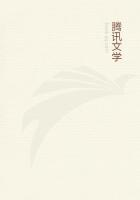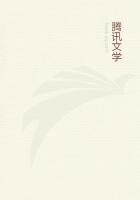One day they were at tea in the laboratory and a discussion sprang up about the question of women's suffrage. The movement was then in its earlier militant phases, and one of the women only, Miss Garvice, opposed it, though Ann Veronica was disposed to be lukewarm. But a man's opposition always inclined her to the suffrage side; she had a curious feeling of loyalty in seeing the more aggressive women through. Capes was irritatingly judicial in the matter, neither absurdly against, in which case one might have smashed him, or hopelessly undecided, but tepidly sceptical. Miss Klegg and the youngest girl made a vigorous attack on Miss Garvice, who had said she thought women lost something infinitely precious by mingling in the conflicts of life. The discussion wandered, and was punctuated with bread and butter. Capes was inclined to support Miss Klegg until Miss Garvice cornered him by quoting him against himself, and citing a recent paper in the Nineteenth Century, in which, following Atkinson, he had made a vigorous and damaging attack on Lester Ward's case for the primitive matriarchate and the predominant importance of the female throughout the animal kingdom.
Ann Veronica was not aware of this literary side of her teacher;she had a little tinge of annoyance at Miss Garvice's advantage.
Afterwards she hunted up the article in question, and it seemed to her quite delightfully written and argued. Capes had the gift of easy, unaffected writing, coupled with very clear and logical thinking, and to follow his written thought gave her the sensation of cutting things with a perfectly new, perfectly sharp knife. She found herself anxious to read more of him, and the next Wednesday she went to the British Museum and hunted first among the half-crown magazines for his essays and then through various scientific quarterlies for his research papers. The ordinary research paper, when it is not extravagant theorizing, is apt to be rather sawdusty in texture, and Ann Veronica was delighted to find the same easy and confident luminosity that distinguished his work for the general reader. She returned to these latter, and at the back of her mind, as she looked them over again, was a very distinct resolve to quote them after the manner of Miss Garvice at the very first opportunity.
When she got home to her lodgings that evening she reflected with something like surprise upon her half-day's employment, and decided that it showed nothing more nor less than that Capes was a really very interesting person indeed.
And then she fell into a musing about Capes. She wondered why he was so distinctive, so unlike other men, and it never occurred to her for some time that this might be because she was falling in love with him.
Part 5
Yet Ann Veronica was thinking a very great deal about love. Adozen shynesses and intellectual barriers were being outflanked or broken down in her mind. All the influences about her worked with her own predisposition and against all the traditions of her home and upbringing to deal with the facts of life in an unabashed manner. Ramage, by a hundred skilful hints had led her to realize that the problem of her own life was inseparably associated with, and indeed only one special case of, the problems of any woman's life, and that the problem of a woman's life is love.
"A young man comes into life asking how best he may place himself," Ramage had said; "a woman comes into life thinking instinctively how best she may give herself."She noted that as a good saying, and it germinated and spread tentacles of explanation through her brain. The biological laboratory, perpetually viewing life as pairing and breeding and selection, and again pairing and breeding, seemed only a translated generalization of that assertion. And all the talk of the Miniver people and the Widgett people seemed always to be like a ship in adverse weather on the lee shore of love. "For seven years," said Ann Veronica, "I have been trying to keep myself from thinking about love. . . .
"I have been training myself to look askance at beautiful things."She gave herself permission now to look at this squarely. She made herself a private declaration of liberty. "This is mere nonsense, mere tongue-tied fear!" she said. "This is the slavery of the veiled life. I might as well be at Morningside Park.
This business of love is the supreme affair in life, it is the woman's one event and crisis that makes up for all her other restrictions, and I cower--as we all cower--with a blushing and paralyzed mind until it overtakes me! . . .
"I'll be hanged if I do."
But she could not talk freely about love, she found, for all that manumission.
Ramage seemed always fencing about the forbidden topic, probing for openings, and she wondered why she did not give him them.
But something instinctive prevented that, and with the finest resolve not to be "silly" and prudish she found that whenever he became at all bold in this matter she became severely scientific and impersonal, almost entomological indeed, in her method; she killed every remark as he made it and pinned it out for examination. In the biological laboratory that was their invincible tone. But she disapproved more and more of her own mental austerity. Here was an experienced man of the world, her friend, who evidently took a great interest in this supreme topic and was willing to give her the benefit of his experiences! Why should not she be at her ease with him? Why should not she know things? It is hard enough anyhow for a human being to learn, she decided, but it is a dozen times more difficult than it need be because of all this locking of the lips and thoughts.
She contrived to break down the barriers of shyness at last in one direction, and talked one night of love and the facts of love with Miss Miniver.

